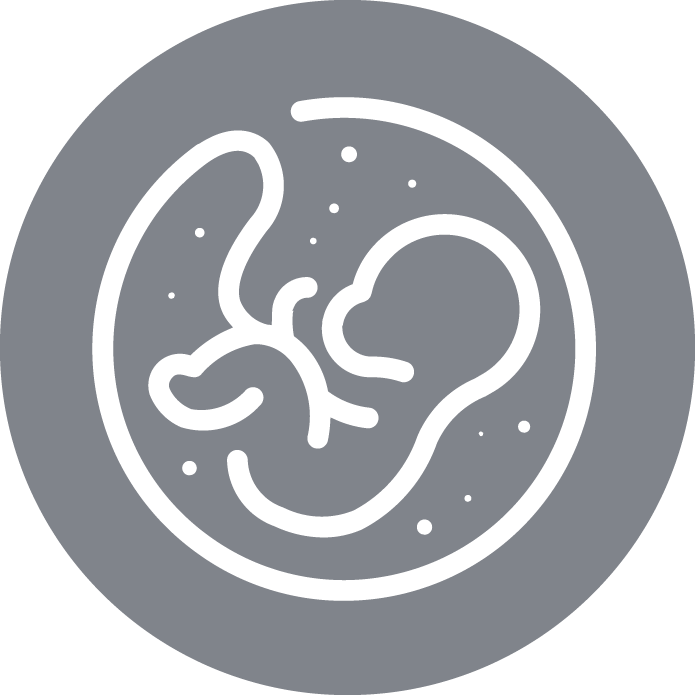“Girls need to know that what they do or do not achieve is entirely up to them” Marga Esbert. International Day of Women and Girls in Science
Dr. Marga Esbert, research coordinator at IVIRMA Barcelona, has been pursuing a new level of research in New Jersey for two years now. As a biologist, she focused for many years on the study of male infertility. Now she has undertaken an international postdoctoral fellowship to discover how and when oocytes can be matured in vitro.
From an early age, Dr Esbert's strong sense of curiosity made her realize that science is for people who are not easily discouraged. We asked her what advice she would give to girls who are considering this as a career option, since there are so many female role models in science today. She was very clear: "What I would tell girls, which is the same thing I tirelessly repeat to my children, is not to let anyone convince them of what they are going to achieve or not, because that depends solely on them".
How did you get started in science?
Let's just say that during my school years, problems and experiments related to scientific subjects were an entertaining challenge for me.
What about reproductive medicine?
By chance. When I was a third-year biology student, a family member who worked in the Dexeus University Institute told me that they needed a substitute technician in the In Vitro Fertilization laboratory. I had a brief interview with Dr. Ana Veiga, a pioneer in Spanish assisted reproduction who I had seen many times on TV. Incidentally, I trembled throughout the entire interview. And the following week, I began attending the laboratory to learn from the person I was going to replace.
And did the spark come alive?
One of my duties was to open the laboratory. When I arrived on the first day, however, the embryologists were already at work conducting an embryo biopsy with pre-implantation genetic testing. These people were able to safely extract the cells from the embryo for genetic screening; insert a sperm into the egg; and consequently, transfer these embryos to the women who would become mothers. I was so incredibly moved that I was certain that what I wanted most in life was to be an embryologist.
I stayed on once the substitution period was over and finished my degree. Afterwards, I was fortunate enough to study the Master's Degree in Assisted Reproduction that was taught there in conjunction with the Autonomous University of Barcelona.
Were you exposed to science as a child?
No one in my family was involved in this field, but my parents always stressed the importance of academic training to access the professional career I wanted. I remember my biology teacher. Apart from trying to make her subject enjoyable, she accompanied us to her faculty on the open day to show us the laboratories where she studied, and I later.
What would you say to the girls who want to be scientists?
What I would tell girls, which is the same thing I tirelessly repeat to my children, is, “Don’t let anyone tell you what you are or aren’t going to achieve. That depends entirely upon you.”
Have you encountered any difficulties in your career?
So many! But difficulties are always a learning experience. My mentor, Dr Emre Seli, has taken to heart a quote from John Lennon: “Everything will be okay in the end. And if it’s not okay, it’s not the end." But I do remember it being quite difficult to return to work after my first maternity leave for a number of reasons. The main one was that every night my son woke me up about 5 times to nurse, and I would wake up exhausted every morning. But I believe that children, in addition to providing you with added patience, give you the extra energy to keep going.
Do you think science is vocational?
Totally vocational. It's a job for people who don't give up easily. It can take months to design and obtain approval of the project from an ethics committee. Then it takes months to perfect a technique, then months or years of recruiting patients to obtain results, which are often not what you expected. Finally, you must publish the results... It's a real obstacle course. I think many people do not realize just how much time and effort go into each project.
What is your line of research?
Although I studied male infertility for many years, I have been very focused on in vitro oocyte maturation for the last four years or so.
What led you to this new study?
A brilliant talk by Dr. Irma Virant-Klun, a researcher from Slovenia. When we retrieve oocytes from patients undergoing in vitro fertilization, we have to free the oocytes from the surrounding cumulus cells. After that procedure, we see whether the oocytes are mature and can therefore be used, or whether they are immature and have to be discarded. She proposed to not discard the immature oocytes, but to incubate them with the cumulus cells that we had previously set aside. That way, we could return the oocyte to something resembling its physiological niche. I thought this was an excellent idea. So together with my colleague Cristina Garcia, we started a project. We first cultured the oocytes with their cumulus cells and then assessed whether the resulting matured oocytes were chromosomally normal. We had to learn how to do a polar body biopsy, which was very gratifying because this technique had not been available in our laboratory to date.
Why did you leave, and are there more opportunities outside of Spain?
I was appointed research coordinator at IVI BCN and became a sort of mentor for several professionals at my center who wanted to carry out research projects. I felt that I was not sufficiently prepared to take on this role. Dr. Agustín Ballesteros, the director of my clinic, supported me when I asked to do a postdoctorate for further training. After IVI joined RMA, I thought that a stay at the New Jersey clinic would be a good option, given its prolific scientific production. I obtained the approval of the president, Dr. Pellicer, the head of research, Dr. Seli and, against all odds, that of the CEO, Dr. Scott. And I say against all odds because I managed to sneak into the taxi that was taking him from one meeting to another. This was after he was unable to speak with me during his visit to IVI Barcelona. In those 10 minutes, I explained to him my reasons for wanting to visit the clinic, and he ended up saying that yes, he would host me for a year in NJ. I remember calling my husband to tell him about it, and he told me: "He said yes because he thought you were a psychopath. His only other option was to jump out of the taxi while it was moving.” Now I've been living here for two years, where I've learned many things and met fantastic people whom I'll miss when I return to Barcelona. The truth is that in the United States there are many available resources for research and the legislation is a little more favorable in this respect, allowing projects to be carried out in a short period of time that would take forever in Spain.
What answers are you looking for?
Unfortunately, 15% of the oocytes we recover from patients are immature which represents a loss of valuable biological material, especially when women have a low number of oocytes. During the last call, I applied for a FIS grant with low expectations. I knew that I would be competing with many projects on Coronavirus, which was obviously a topic that required a lot of resources. We were pleasantly surprised to be awarded the grant. With it, I hope we will be able to better understand why in vitro matured oocytes have less potential than in vivo matured oocytes. This will allow us to try to design the ideal niche for oocytes to mature safely and effectively.
What do you think of the current scientific situation in Spain?
Unfortunately, there are exceptional professionals with good ideas and motivation, but the necessary resources are not allocated. I have scientist friends who end up leaving their jobs. This is because their conditions are precarious and/or they struggle because the continuity of their project depends on obtaining a grant.
And what do you consider to be the role of women in science?
I think there is still room for improvement in this area. There is a pay gap, but fortunately not in our company. We need more women in management and political positions to be able to make their opinions count. However, I am hopeful that this will change soon. Previously, when our information only came from books, we saw a predominantly male scientific community. Nowadays, the internet can fortunately supply us with access to a plethora of real-time information. It is no surprise to see that there are brilliant female scientists. Future female scientists will have examples such as the tenacious Dr. Katalin Kariko, now a renowned Hungarian scientist, who worked for decades on the therapeutic use of mRNA. As a result of her research, it was possible to develop vaccines against the Coronavirus in record time.



